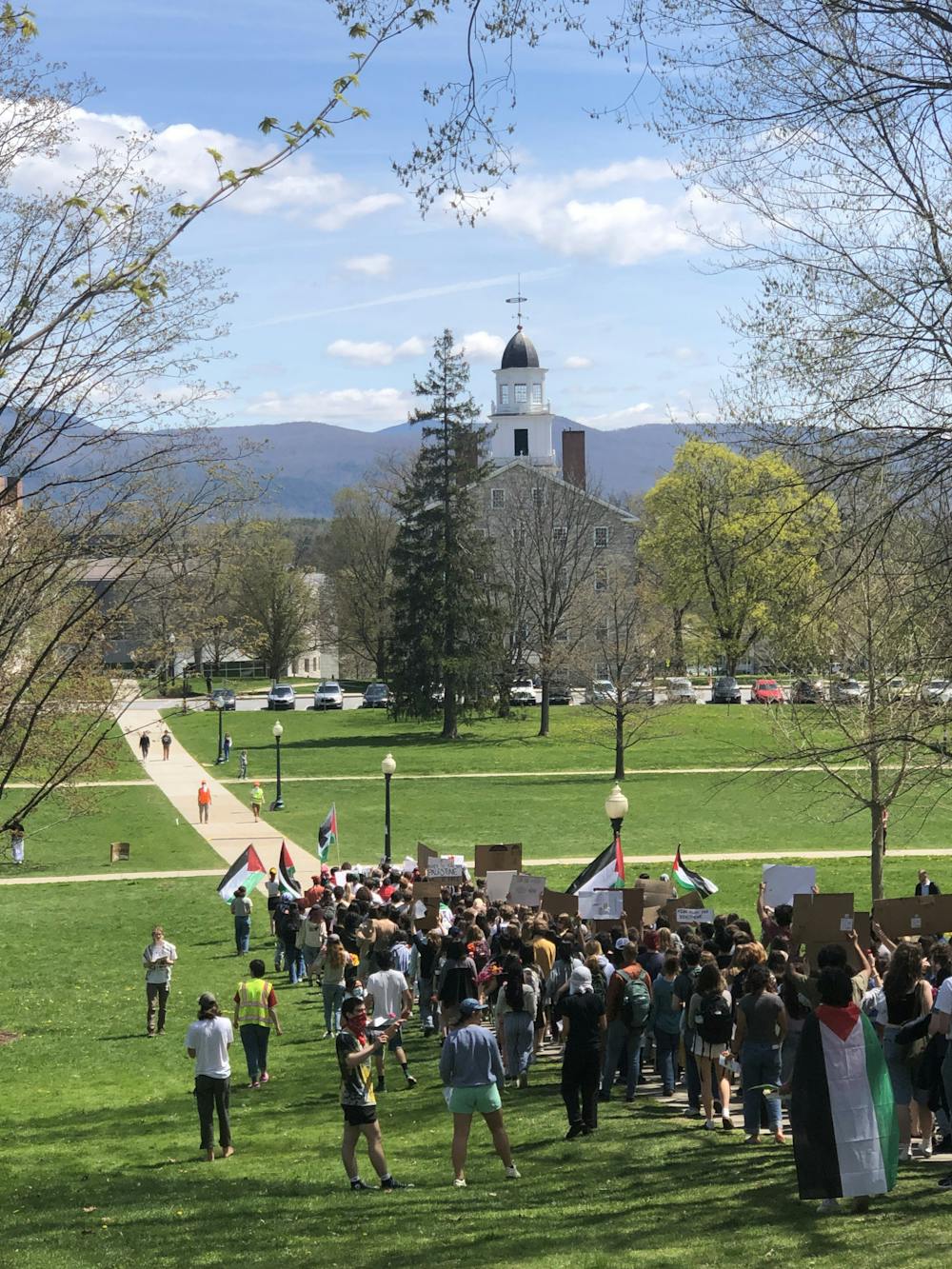“In the arsenal of diplomacy, economic sanctions are crude weapons, slow-acting and unpredictable. When they work, innocents suffer. The bad guys, after all, are usually the ones with the bunkers and gas masks — or, in this case, the power and cash — to endure a war of attrition.”
So contends Bill Keller, Pulitzer Prize-winning journalist, former Executive Editor of The New York Times and, most pertinently, the newspaper’s Bureau Chief in Johannesburg from 1992 to 1995. His essential critique has not lost its resonance. Last spring, echoing the many voices of fellow undergraduate protesters in support of the Boycott, Divest, Sanction (BDS) movement, the Middlebury student body widely endorsed divestment of the college’s endowment in response to the war in Gaza. Contrary to this position, I hold that BDS — an effective way to socially stigmatize an industry or government, but not to generate economic or political change — would constitute a ham-handed, inexpedient form of institutional opposition to the conflict. I begin by enumerating the reasons why rapid divestment of the endowment, as well as investment transparency, would not be possible before demonstrating that, even if investors were to rapidly and broadly divest from the Israeli government and Israeli businesses, this approach would fail to meaningfully weaken these entities but instead would almost certainly hurt the poorest, most vulnerable Israelis — and Palestinians.
Calls for Middlebury to divest parts of its endowment and become financially transparent rest on a fundamental misunderstanding of what the process of investing and divesting a university endowment looks like. Because Middlebury's portfolio is largely made up of long-run, illiquid private market investments, it usually cannot sell investments prematurely without significant losses, and often cannot sell them prematurely at all. This is why the college necessarily takes so long to divest. And, unlike in the case of divestment from fossil fuels — a process which will take the college 15 years — waiting decades for divestment in response to a current conflict would render such action rather moot. Moreover, total financial transparency would be impossible given that Investure, the investment management firm Middlebury utilizes, sometimes “enters into confidentiality or ‘standstill’ agreements,” “acquire[s] confidential information” and “obtain[s] access to material nonpublic information.” Constant transparency, too, would be impossible given that Middlebury invests so heavily in private markets which report only on a semi-annual basis. A transition to financial transparency would be a wildly and rightfully unprecedented tack which would inevitably lose the college millions of dollars. It is abundantly clear that transparency would not benefit Gazans but would only limit Middlebury’s ability to provide for financial aid, staff wages and other necessary expenditures.
Perhaps more compelling, however, is the issue that even the goal — to be a part of a large wave of divestment, sanctioning and financial boycotting — would not generate the outcome that Middlebury students want. U.S. sanctions, for example, have only produced the desired effect in 13% of cases since 1970. In Iran, Afghanistan, Venezuela and South Africa, to name just a few of the many nations against which the United States has imposed sanctions in recent decades, these measures have economically strangled the poor while causing far less harm to the intended targets (namely, the Iranian government, Islamic Revolutionary Guard Corps (IRGC), Taliban, Maduro administration and National Party). In a 2014 resolution, The Human Rights Council of the United Nations declared itself “alarmed by the disproportionate and indiscriminate human costs of unilateral sanctions” — a warning we cannot allow ourselves to forget or ignore. In the Gaza Strip, where unemployment rates frequently exceed 50% even in peacetime and the poverty rate, as of October 2023, was over 80%, sanctions would undoubtedly prove lethal for many. Likewise, divestment and economic boycotting rarely have the intended impact. In order to sell stock, of course, there must be a buyer; that divested stock does not merely evaporate. With millions of global investors, many of whom are relatively unscrupulous with regard to financial decision-making, investments that are sloughed off on moral grounds are then merely picked up by less morally motivated agents, who then take on the power and influence that comes with owning stock in a company.
Thus, while I agree with the authors of last spring’s Student Government Association Referendum in that “money is power,” I ask you to consider whose power — and whose stockpiles — would actually dwindle if Israel were to be widely sanctioned, boycotted and targeted by divestment campaigns. The preponderance of evidence suggests that it would not be the Israeli government, Israel Defence Forces or major corporations with ties to Israel who would be most impacted by BDS; rather, it would be the destitute and the feeble whose stockpiles would dry up and the power of morally-minded investors which would be abdicated.
Claire '24.5 (she/her/hers) is a Senior Opinion Editor.
Claire is a double-major in economics and English literature. Outside of the classroom, she enjoys amateur boxing, good espresso, and spontaneous travel. Claire studied abroad at Oxford in the spring of 2023.
Claire has previously served as a Copy Editor for The Campus. She enjoys reading op-ed submissions that surprise her.




